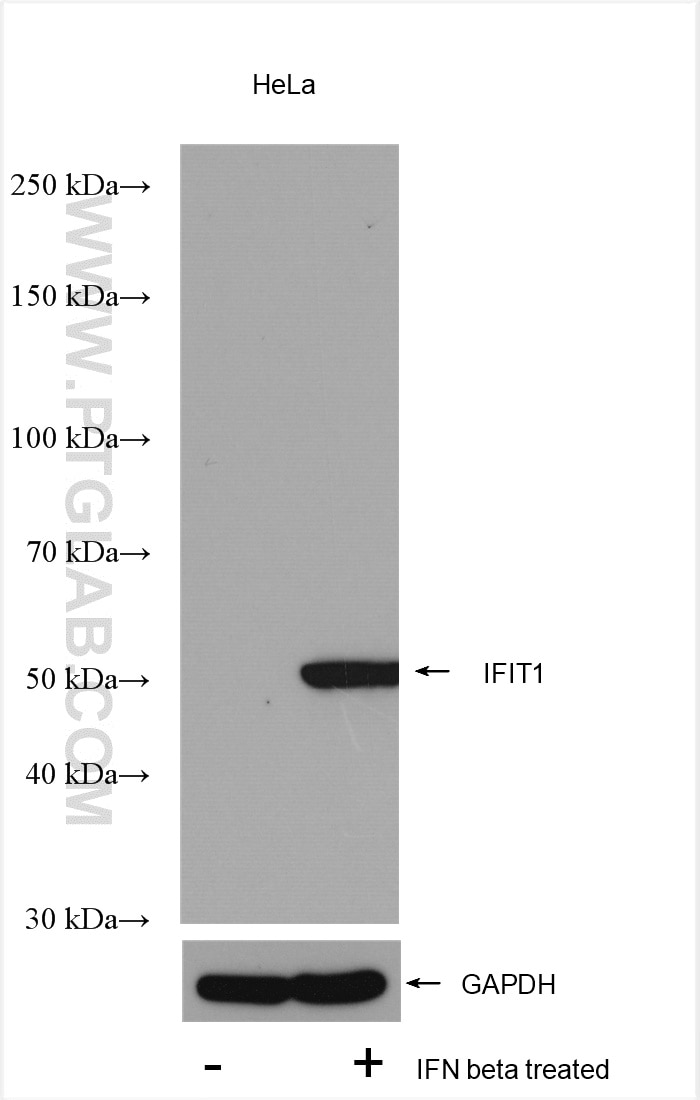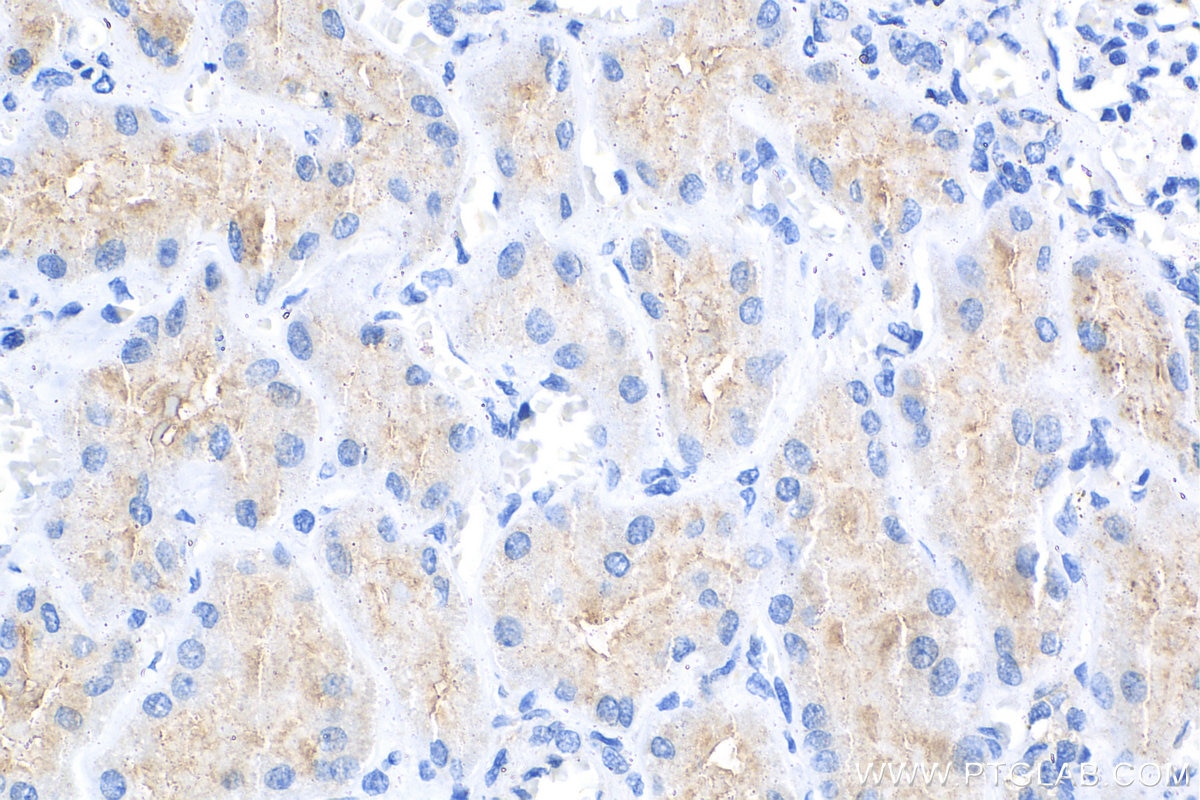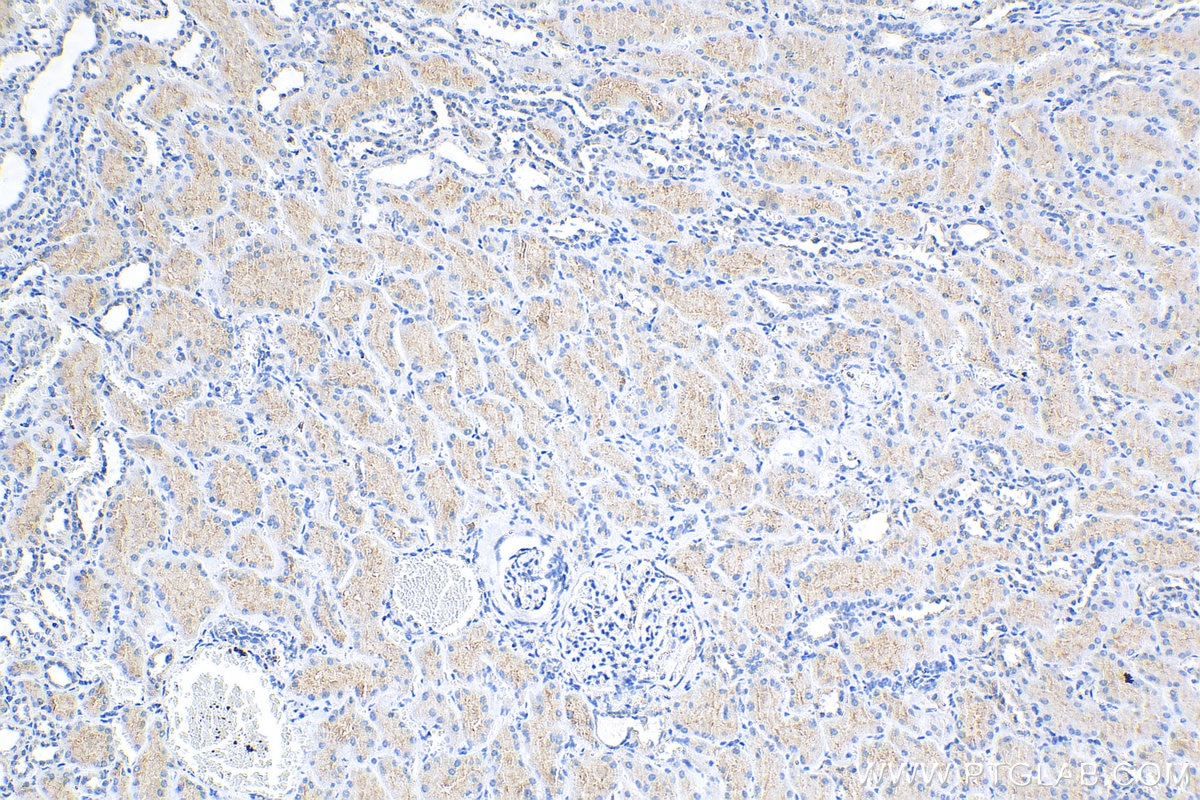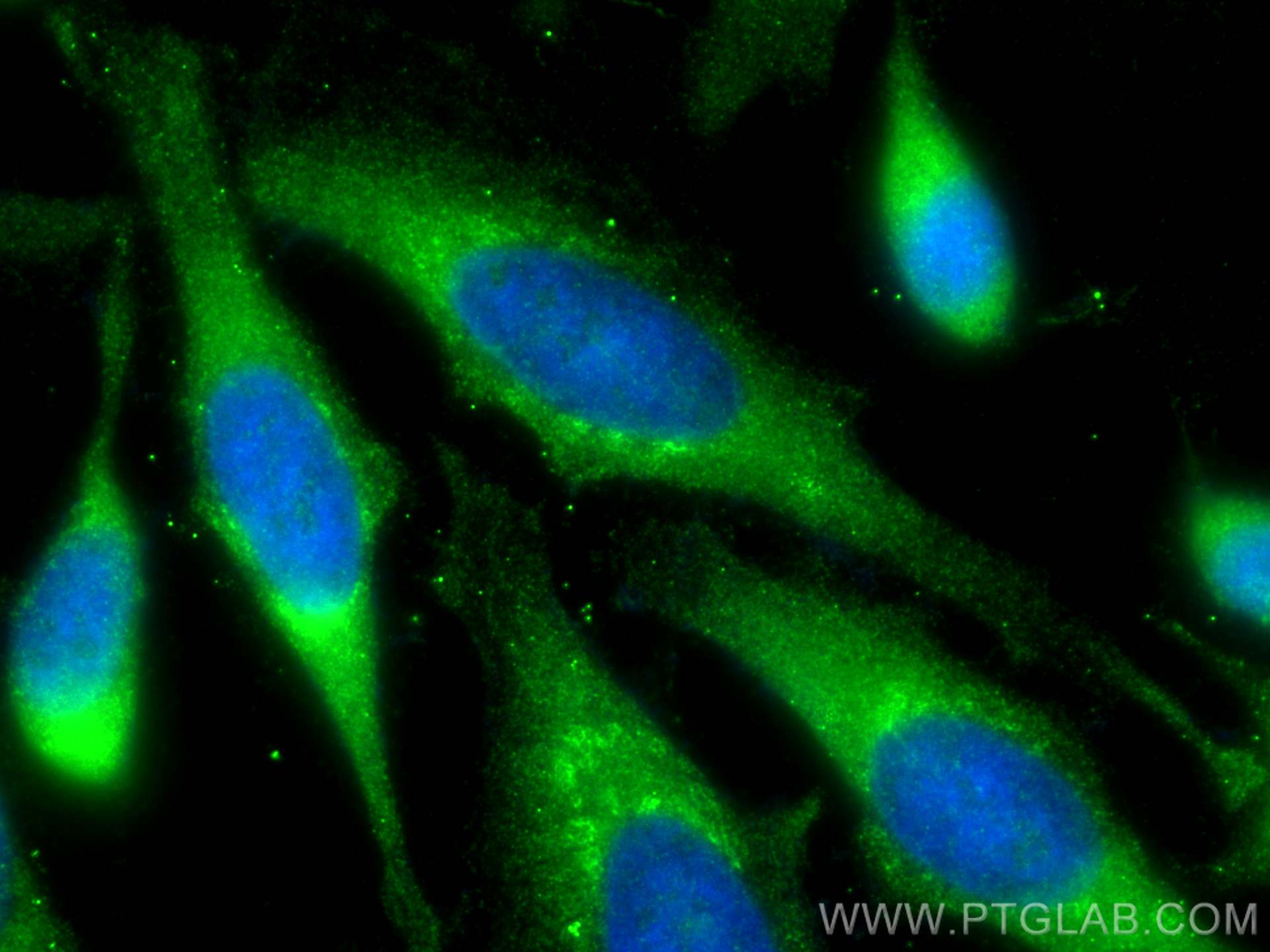Validation Data Gallery
Tested Applications
| Positive WB detected in | IFN beta treated HeLa cells |
| Positive IHC detected in | human kidney tissue Note: suggested antigen retrieval with TE buffer pH 9.0; (*) Alternatively, antigen retrieval may be performed with citrate buffer pH 6.0 |
| Positive IF/ICC detected in | HeLa cells |
Recommended dilution
| Application | Dilution |
|---|---|
| Western Blot (WB) | WB : 1:1000-1:4000 |
| Immunohistochemistry (IHC) | IHC : 1:200-1:800 |
| Immunofluorescence (IF)/ICC | IF/ICC : 1:200-1:800 |
| It is recommended that this reagent should be titrated in each testing system to obtain optimal results. | |
| Sample-dependent, Check data in validation data gallery. | |
Published Applications
| KD/KO | See 3 publications below |
| WB | See 32 publications below |
| IHC | See 2 publications below |
| IF | See 4 publications below |
| CoIP | See 1 publications below |
Product Information
23247-1-AP targets IFIT1 in WB, IHC, IF/ICC, CoIP, ELISA applications and shows reactivity with human samples.
| Tested Reactivity | human |
| Cited Reactivity | human, mouse |
| Host / Isotype | Rabbit / IgG |
| Class | Polyclonal |
| Type | Antibody |
| Immunogen |
CatNo: Ag19691 Product name: Recombinant human IFIT1 protein Source: e coli.-derived, PET28a Tag: 6*His Domain: 340-460 aa of BC007091 Sequence: EVAHLDLARMYIEAGNHRKAEENFQKLLCMKPVVEETMQDIHFHYGRFQEFQKKSDVNAIIHYLKAIKIEQASLTRDKSINSLKKLVLRKLRRKALDLESLSLLGFVYKLEGNMNEALEYY 相同性解析による交差性が予測される生物種 |
| Full Name | interferon-induced protein with tetratricopeptide repeats 1 |
| Calculated molecular weight | 478 aa, 55 kDa |
| Observed molecular weight | 55 KDa |
| GenBank accession number | BC007091 |
| Gene Symbol | IFIT1 |
| Gene ID (NCBI) | 3434 |
| RRID | AB_2811269 |
| Conjugate | Unconjugated |
| Form | |
| Form | Liquid |
| Purification Method | Antigen Affinity purified |
| UNIPROT ID | P09914 |
| Storage Buffer | PBS with 0.02% sodium azide and 50% glycerol{{ptg:BufferTemp}}7.3 |
| Storage Conditions | Store at -20°C. Stable for one year after shipment. Aliquoting is unnecessary for -20oC storage. |
Background Information
IFIT1, also known as glucocorticoid-attenuated response gene 16 protein (GARG-16), is a 463 amino acid protein belonging to the IFIT family. IFIT genes comprise a large family with three (IFIT1, IFIT2, and IFIT3) and four (IFIT1, IFIT2, IFIT3, and IFIT5) members in mice and humans, respectively. IFIT1 specifically bound virus PPP-RNA forms a complex with IFIT2 and IFIT3 to sequester the viral PPP-RNA and prevent virus replication.
Protocols
| Product Specific Protocols | |
|---|---|
| IF protocol for IFIT1 antibody 23247-1-AP | Download protocol |
| IHC protocol for IFIT1 antibody 23247-1-AP | Download protocol |
| WB protocol for IFIT1 antibody 23247-1-AP | Download protocol |
| Standard Protocols | |
|---|---|
| Click here to view our Standard Protocols |
Publications
| Species | Application | Title |
|---|---|---|
Signal Transduct Target Ther TRAF3 activates STING-mediated suppression of EV-A71 and target of viral evasion | ||
Adv Sci (Weinh) Single-Cell Transcriptomic Analysis of Primary and Metastatic Tumor Ecosystems in Esophageal Squamous Cell Carcinoma | ||
Cancer Lett Induction of IFIT1/IFIT3 and inhibition of Bcl-2 orchestrate the treatment of myeloma and leukemia via pyroptosis
| ||
Int J Mol Sci Rubella Virus Triggers Type I Interferon Antiviral Response in Cultured Human Neural Cells: Involvement in the Control of Viral Gene Expression and Infectious Progeny Production | ||
J Neuroinflammation Progression of pathology in PINK1-deficient mouse brain from splicing via ubiquitination, ER stress, and mitophagy changes to neuroinflammation. | ||
Cell Oncol (Dordr) IFIT1 modulates the proliferation, migration and invasion of pancreatic cancer cells via Wnt/β-catenin signaling.
|




